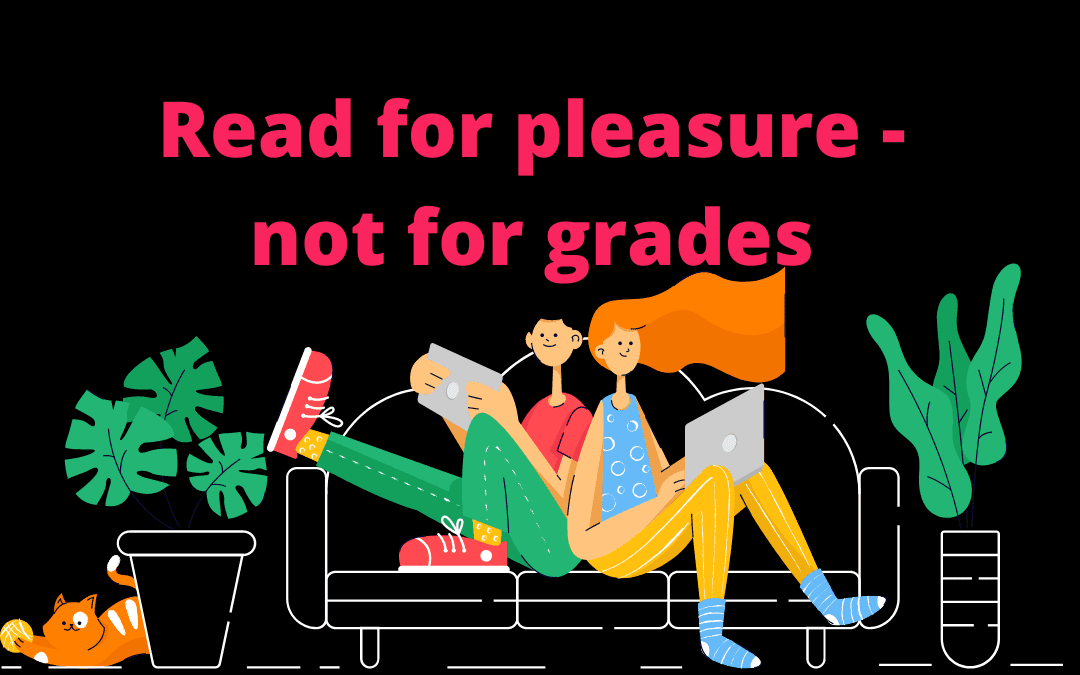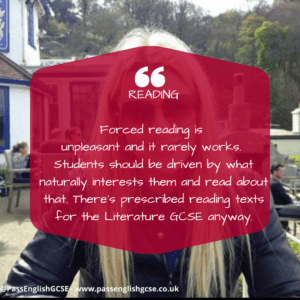How do I get my child to enjoy reading?
A guide for parents and students to enjoy reading
Are you struggling to get your child to read?
Perhaps they’re glued to their smartphone? Or maybe video games? Anything but reading?
You would not be the first person to raise this issue.
It is unsurprising that children are reading less than ever before.
And there are various strategies suggested to help.
Whilst reading can feel like an uphill battle – it doesn’t have to be.
You can find a way to get your child to enjoy reading.
So thinking about taking the first step to solve it is crucial.
So what do you do first?
How do I get my child to enjoy reading?
The answer is simple – no one will choose to read material that does not interest them – find something which does interest them and build in time to read it – together if you have to.
This strategy works if you’re consistent and helpful in implementing it. Students read when we set them up for success.
Here are three things to do to get your child to enjoy reading.
1. Talk to your child about what they would like to learn and discover.
Ask your child:
- What would they like to improve on in life?
- Which hobbies interest them and how can they learn more about them?
- Why they like their favourite subjects and hobbies (this can lead to reading material…)
- Where might they find the information and explore further (hint – whilst YouTube is good – people still learn their disciplines from books)
It is possible to sit down with them and work upon a strategy to build up their knowledge together.
This is something I offer in my student mentoring too.
The focus is on learning, not reading.
Reading is merely the vehicle for their learning.
Learning = empowerment.
2. Build reading into their day.
With the best will in the world – no one will read unless you make time to read.
It doesn’t matter how great the book is, most books struggle to compete with technology, especially in the evenings when people are tired.
Many schools make time for twenty minutes of reading daily – they call it DEAR time (Drop Everything And Read) – you can too.
Make it a condition on returning home that at certain o’clock everyday in a certain location your child will give up all other distractions and read their book. No phones. No TV. Nothing but the book.
If twenty minutes is too much, try starting with ten or even five minutes.
Just make sure there is nothing else happening but reading.
Little habits lead to big changes over time so keep the reading time small and attainable, just like James Clear advocates in his excellent book ‘Atomic Habits’. Here he explains how to become a better person, gradually over time, little tweaks at a time.
The principles work for reading, just like any good habit.
You’ll soon be able to tell if the reading is working or not. If they’re engaged the whole time – they have the right book.
If they are hating it after trying for a couple of sessions – they may need another book which is either more accessible (easier to read) or more suitable (it aligns better with their learning desires and interests).
3. Talk about reading and read yourself!
Children do as you do – before they’ll do as you say.
Are you reading books or text yourself? If so, are you visible in your reading?
If you aren’t reading for pleasure and your child dislikes reading – it will be a hard habit to encourage.
Perhaps you could read together and discuss your books afterwards?
Maybe your child could read to you whilst you cook, clean, work?
You need to model the behaviour you want to see – and that continues well into the teenage years.
Ask yourself:
- Am I modelling the behaviour I want to see?
- Is reading visible in our home?
- Can my child see the benefits of reading outside of school mandated reading?
Don’t underestimate the power of your own actions here. Children are always watching you and they will follow your actions first, advice second.
Remember come secondary school they will be loaded with reading.
This means reading must work for them and they must see it as a pleasure, not a chore – that means keeping reading the vehicle for their aspirations first.
Never force it but do make it a part of life at home.
And if you still need some help with reading suggestions I’m always happy to advise you further.





